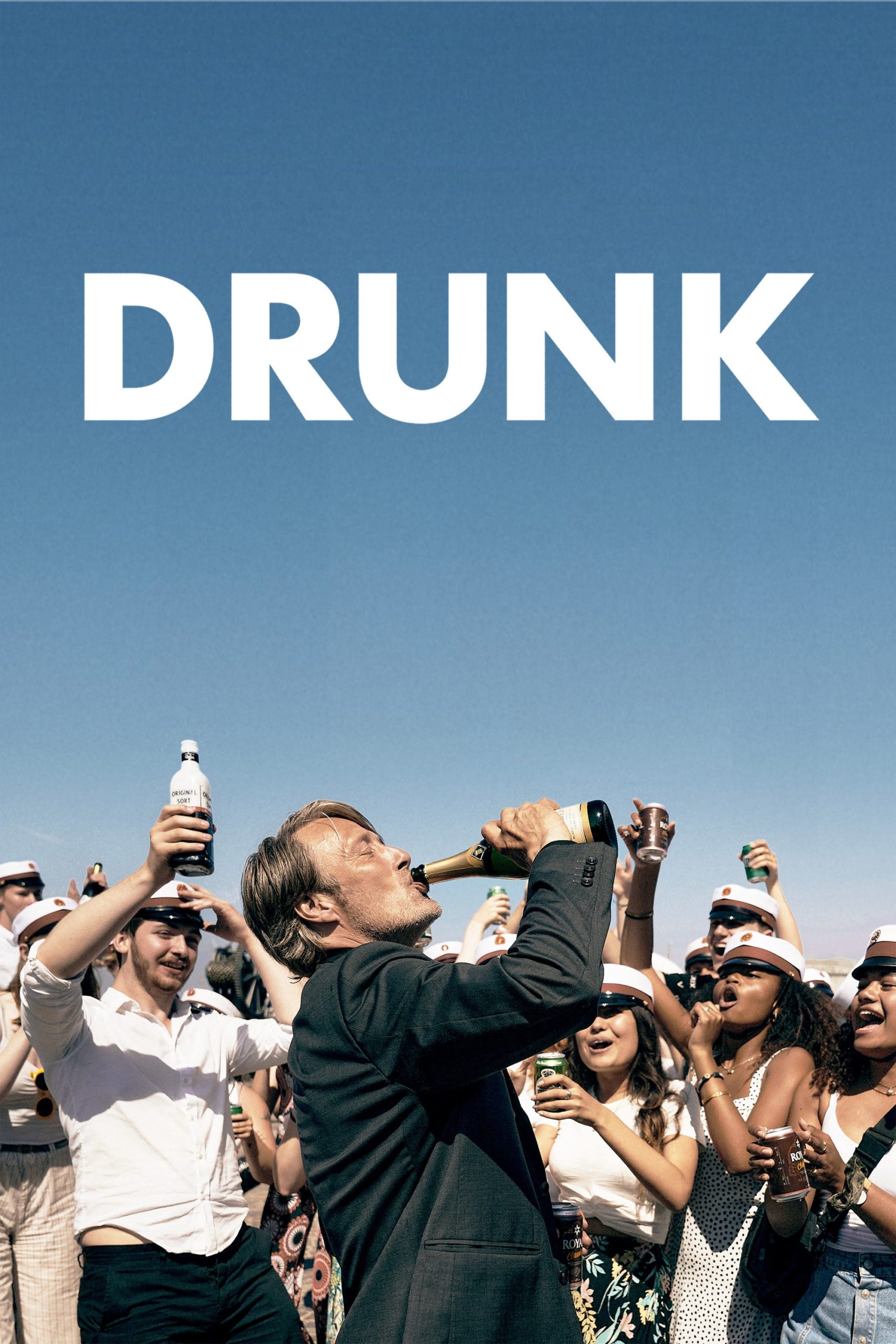Cinema Wednesdays - Alice Bruxelle
«Hymn to friendship and life» for some, Drunk (2020) collects nominations: Cannes, Oscars, Césars, Golden Globes. And yet, director Thomas Vinterberg completely misses his main subject: alcohol. Like a beer at the end of the day, Drunk to clear the mind.
If you knew me personally, you'd probably know that I don't deny myself a little glass of Fendant from time to time, and, I confess, more than one if I'm so inclined. Rather like the characters in Drunk, who, for their part, substitute Valais wine for a few liters of alcohol concealed in their flasks. If they don't have the good taste to get drunk on local products, it's because the work in question is a Danish film directed by Thomas Vinterberg, to whom we owe the first film - "The Witches of the Valais". Festen (1998) - of the Dogme95 film movement, of which he is co-founder. The film received rave reviews from critics and a plethora of nominations and awards, including nominations at the Cannes Film Festival and the Golden Globes, as well as the César for Best Foreign Film and the Oscar for Best International Film. So it's with a roar of applause that we try to add a little water to the wine of Drunk, not only to cushion the blow, but also to realize the emptiness left behind once it's over.
Reality sanded down with sandpaper
According to the theory of Norwegian psychologist Finn Skårderud, if the deficit of 0.5 grams of alcohol that he claims is naturally present in the blood were to be made good, human existence would be considerably improved in all areas. In the name of science, four teacher friends, including the depressive Martin, played by Mads Mikkelsen - who reunites with Vinterberg, with whom he had previously worked on the film The Hunt (2012) - decide to operationalize it. This experiment leads them to get drunk during the day, gradually increasing the doses until they find themselves on the edge of their limits. The theme of alcohol is not a random choice on the part of the director. Indeed, paradoxical as it may seem, within the borders of the second «happiest country in the world», alcohol is a scourge, well demonstrated in the opening scene in which a group of high-school students wallow in drunkenness and vomit with total casualness. If the filmmaker didn't want to take sides on this issue - alcohol is neither water, nor the harbinger of society's perdition - the freedom given to viewers to form their own opinions should have meant not «betraying the essence of things, letting them exist freely for themselves», as André Bazin so rightly wrote. In any case, this is not reflected in the film. The choice to cut ourselves off from a certain number of tools for apprehending reality even leaves a hint of bitter betrayal in the mouth.
In an interview with Euronews, Thomas Vinterberg describes his feature as «a film about life». In an article in Parisian, It's ’a hymn to friendship and life«, with scenes that stretch out »with a great deal of realism«. If, indeed, one cannot exist without the other, it is necessary to have a certain effect of realism to make a film »that speaks of life«, Drunk misses the mark and only waters down reality.
Although the overhead camera movements - one of Dogme95's hallmarks - hint at a slight documentary effect - as if we were right at the heart of the characters' distress - the rest is just a cleaver for any digressive thought that deviates from the horribly linear narrative. First there's a problem, then the solution, and the ending is a tepid synthesis of the two; nothing surprising, then. Plus, Drunk implies a binary way of thinking that rejects any attempt to make reality more complex. Mads Mikkelsen, for all his bodily presence, takes refuge in a banal dichotomy: he adopts either the behaviour of the loser the most pathetic, unable to exist in the face of his students, colleagues and wife, that of the superhero. Once he's swallowed the precious life-saving potion, he masterfully masters his class, reconciles - in one evening - with his wife and finds his way back into existence. There are no plans for the undesirable effects of alcohol, and no hangovers. It's the solution, period.
Read also | Their children after thema social Goncourt
The apotheosis could have been found in the narrative's most tragic moment: death. Thomas Vinterberg doesn't even give us the time to familiarize ourselves with the major issue at stake in the depression, the very issue at stake in the film: lucidity about our own finitude, which drives us to uncork bottles to forget the ineluctable passage of time. Cover up this death I cannot see; it brings on guilty thoughts.
Feel good movie first and foremost
The film is not about life, nor does it paint a picture of reality. Life is interdependent with death, and to subtract it is to eliminate life. «Reality gives me asthma» wrote Cioran, and yet the film's conclusion is an invitation to «let go», to dance, to enjoy. To give in to something that doesn't exist: existential emptiness. And that's where DrunkIt has a philosophical air about it - quoting another Dane, Kierkegaard, at the beginning and end - but the substance is more of a nihilistic symptom.
Read also | The Peanut Butter Falcon doesn't count for peanuts
Success is based on other codes: that of the feel good movie. The protagonists, by reaching the limits of contemporary society and their social class - the famous triptych of job, house, marriage - manage to surpass their condition through a completely artificial element, a ready-made solution within the reach of any ordinary person. The film is gray. On the one hand, because the four friends' situation may resonate with our own. Depression is the disease of the century, and to sweep it aside with a wave of the sleeve, as with the treatment of the question of death, is comforting in its utopian, even autistic aspect. On the other hand, because it rules out the possibility of having to change oneself, and thus begin a laborious and costly process. Shaking up a status quo is indeed less seductive than forgetting one's own suffering by dancing.
In the end, Drunk is perfectly aligned with its subject: it manufactures oblivion. Clearing one's head with a bender or «letting go» in front of a feel good movie, The choice is yours.
Write to the author: alice.bruxelle@leregardlibre.com




